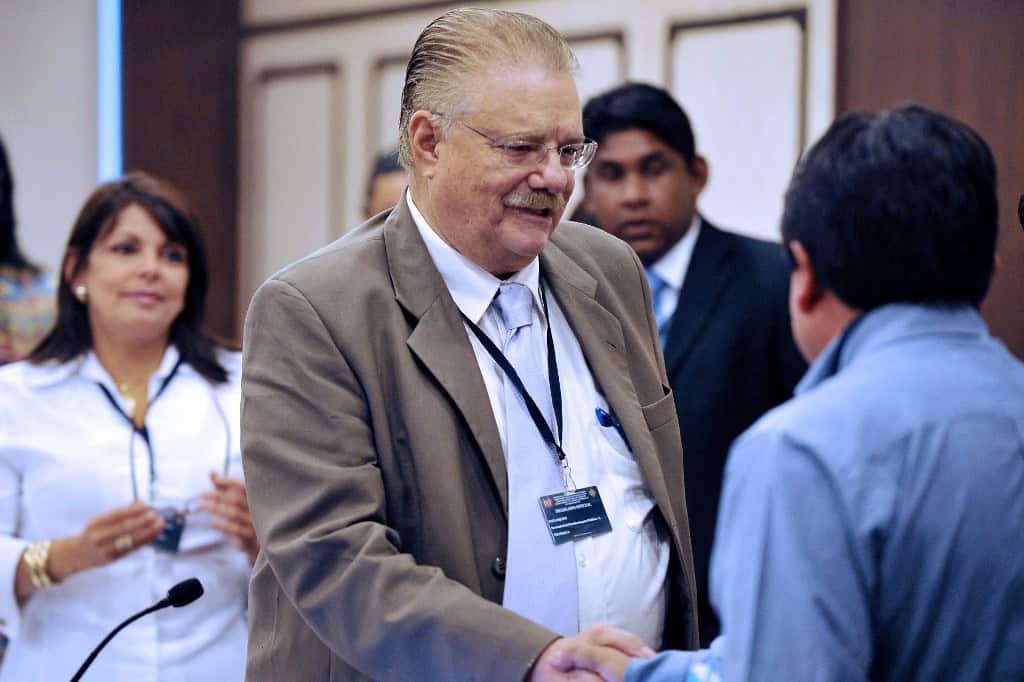Nicaragua’s government has taken an unusual step by appointing two foreign ministers to represent the country on the global stage. Co-President Rosario Murillo announced the decision on Tuesday, naming Valdrack Jaentschke, the current foreign minister, and Denis Moncada, a former top diplomat, as co-ministers of Foreign Affairs.
The decree, signed by Murillo and her husband, President Daniel Ortega, was published on the pro-government site El 19 Digital and is set to appear in the official gazette, La Gaceta.
In her daily address to pro-government media, Murillo stated, “We have two foreign ministers, Denis and Valdrack, who represent us with the seriousness, firmness, coherence, and consistency of our positions before the world.” No specific reasons for the dual appointment were provided in her statement or the decree, leaving analysts and observers to speculate on the motivations behind this move.
The decision comes amid a complex political landscape in Nicaragua, where Ortega, a 79-year-old former guerrilla leader who has been in power since 2007, governs alongside Murillo, who was named co-president in February 2025 following a controversial constitutional reform.
This reform eliminated the separation of powers, consolidating authority under the couple’s leadership. Critics, including exiled Nicaraguans and human rights defenders, argue that this signals an early transfer of power from Ortega, who is reportedly ailing, to Murillo, his 74-year-old wife.
Arturo McFields, Nicaragua’s former ambassador to the Organization of American States, offered insight into the appointments, suggesting they reflect internal dynamics between Ortega and Murillo. “Ortega still refuses to give Murillo full trust to manage foreign relations,” McFields said.
He argued that Moncada, a 76-year-old retired army general and former foreign minister from 2017 to 2024, likely represents Ortega’s interests, while Jaentschke, a 66-year-old former State Security officer who took over as foreign minister in September 2024, aligns with Murillo. McFields went further, stating that neither minister has the autonomy to shape foreign policy, calling their roles symbolic.
Moncada, who currently serves as a presidential adviser for Policy and International Affairs, is representing Nicaragua at the UN General Assembly in New York this week. Meanwhile, Jaentschke continues his duties as the sitting foreign minister.
This dual appointment is not the first of its kind in recent months—since August, Nicaragua has also had two police chiefs, a move that raised similar questions about the country’s governance structure.
Ortega’s administration, which dates back to the Sandinista revolution in the 1980s, has faced accusations of establishing a family dictatorship. Critics point to the government’s response to the 2018 anti-government protests, which left over 300 dead according to the United Nations, as evidence of authoritarian tactics. The government has dismissed these claims, labeling the protests a Washington-backed coup attempt.
The appointment of two foreign ministers adds another layer of complexity to Nicaragua’s political scene, raising questions about the country’s direction and the balance of power between Ortega and Murillo. As the nation navigates these changes, the international community watches closely to see how this unprecedented arrangement will shape Nicaragua’s foreign policy.






